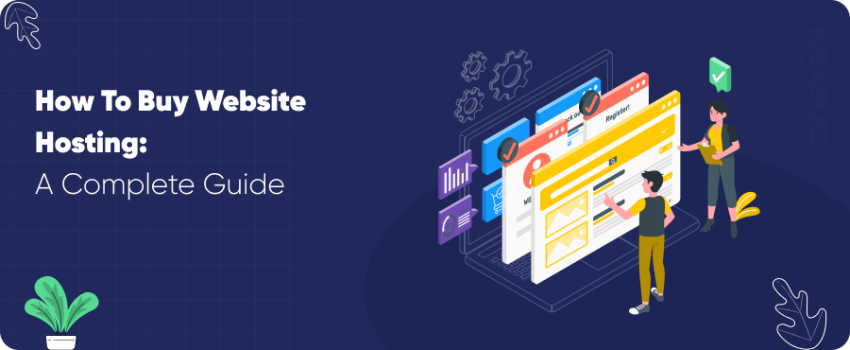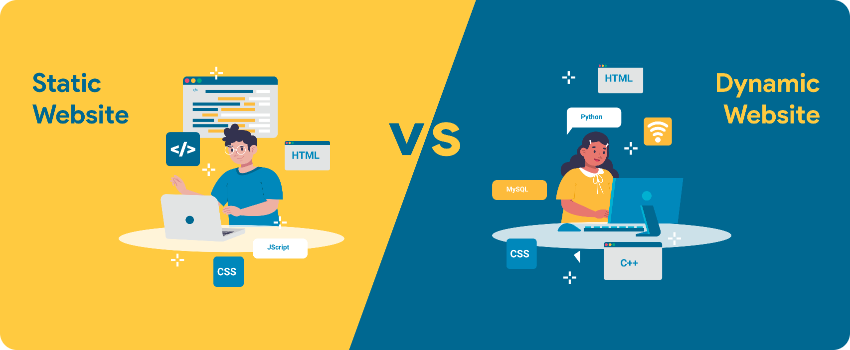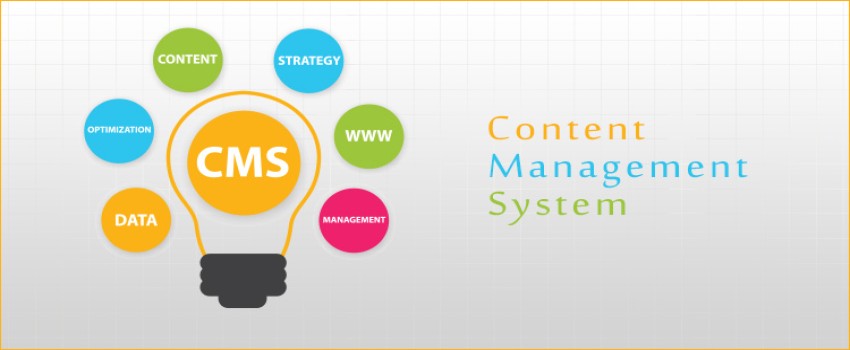How To Buy Website Hosting: A Complete Guide
This guide covers website hosting basics, and hosting types like Shared, VPS, Dedicated, and Cloud Hosting. Learn how to choose a provider considering factors like performance, features, support, scalability, and pricing. Follow step-by-step instructions for hosting your website, including domain setup and testing. Discover tips for optimization like software updates, caching, traffic monitoring, and backups. Master website hosting for a successful online presence.

Introduction
Nowadays, having a website is not optional, it has become a necessity. Whether you are an individual looking to showcase your portfolio or an entrepreneur aiming to reach a wider audience for your business, whatever it be, the base for a successful online presence lies in effective website hosting.
Hosting your website means renting a space on a server to store your website’s files and data, making them accessible to users across the globe.
Choosing the right hosting provider and plan is crucial for ensuring your website's performance, reliability, and security. With numerous hosting options available, understanding the quality of website hosting is essential to making informed decisions and setting your website up for success.
What is Web hosting
Let's understand what is website hosting,
Website hosting serves as the backbone of your online presence and provides us the facility to store and deliver your website’s content to visitors.
Imagine Website hosting as the foundation of your online empire. It's where all the magic happens—the place where your website's files and data are stored and served to visitors around the world. Picture it like a virtual landlord renting out space on their servers to house your website's content.
Let's learn how Website Hosting works
When a user accesses your website, the browser sends a request to the server hosting your site, which then retrieves and delivers the requested files, such as HTML, CSS, and images, enabling the user to view your website
Servers, often located in data centers, are powerful computers designed to store and manage large amounts of data. These servers are connected to the internet 24/7, ensuring that your website remains accessible at all times. By entrusting your website to a hosting provider, you gain access to the infrastructure and resources necessary to keep your site up and running smoothly.
Types of Website Hosting
Shared Hosting: This is like renting a room in an apartment building. Multiple websites share resources on a single server, making it a cost-effective option for beginners.
VPS (Virtual Private Server) Hosting: Imagine having your own virtual space within a larger server environment. VPS hosting offers more control and resources than shared hosting, making it ideal for websites with moderate traffic.
Dedicated Hosting: With dedicated hosting, you have exclusive use of a physical server for your website. This option provides maximum control and performance, making it suitable for high-traffic websites.
Cloud Hosting: Cloud hosting utilizes a network of servers to distribute resources dynamically. It offers flexibility and scalability, allowing you to adjust resources based on your website's needs.
How To Choose a Hosting Provider
Now, let's get down to business: choosing the right hosting provider. It's important to do your research because there are plenty of options.
Factors to Consider When Choosing a Hosting Provider
Performance: Look for providers with high uptime guarantees and fast server speeds to ensure your website is always accessible and responsive.
Features: Consider essential features like storage space, bandwidth, email accounts, SSL certificates, and website builders to meet your website's requirements.
Customer Support: Opt for providers with reliable and responsive customer support to assist you with any technical issues or questions.
Scalability: Choose a provider that offers scalability, allowing you to easily upgrade your hosting plan as your website grows.
Pricing: Compare pricing plans and consider any additional fees to ensure you're getting the best value for your budget.
Steps to Host a Website
Step 1: Research and Choose a Hosting Provider
Explore different providers and evaluate them based on your needs and budget.
Step 2: Select a Hosting Plan
Choose a plan that aligns with your website's requirements and growth projections.
Step 3: Register a Domain Name
If you haven't already, register a domain name for your website.
Step 4: Set Up Your Hosting Account
Follow the provider's instructions to create and set up your hosting account.
Step 5: Configure Domain Settings
Link your domain name to your hosting account to make your website accessible.
Step 6: Upload Website Files or Build Your Website
Upload your website files or use website builders provided by your hosting provider to create your website.
Step 7: Test Your Website
Testing your website on different devices and browsers ensures everything is functioning correctly.
Step 8: Monitor Performance and Make Adjustments
Regularly monitor your website's performance and make adjustments as needed to optimize speed, security, and user experience.
Tips for Optimizing Website Hosting
- Regularly update website software and plugins to enhance security and performance.
- Implement caching and content delivery networks (CDNs) to improve page load times.
- Monitor website traffic and server resources to anticipate scalability needs and optimize resource allocation.
- Backup website files and data regularly to prevent data loss in case of emergencies.
Conclusion
Hosting a website may seem complex, but with the right guidance, it can be a straightforward process. By carefully considering your hosting needs, choosing the right provider, and following best practices for setup and optimization, you can ensure a smooth and successful hosting experience for your website. Remember to regularly monitor and maintain your website to keep it running smoothly and effectively serve your visitors.
Related to this
Let's Discuss Your Project











